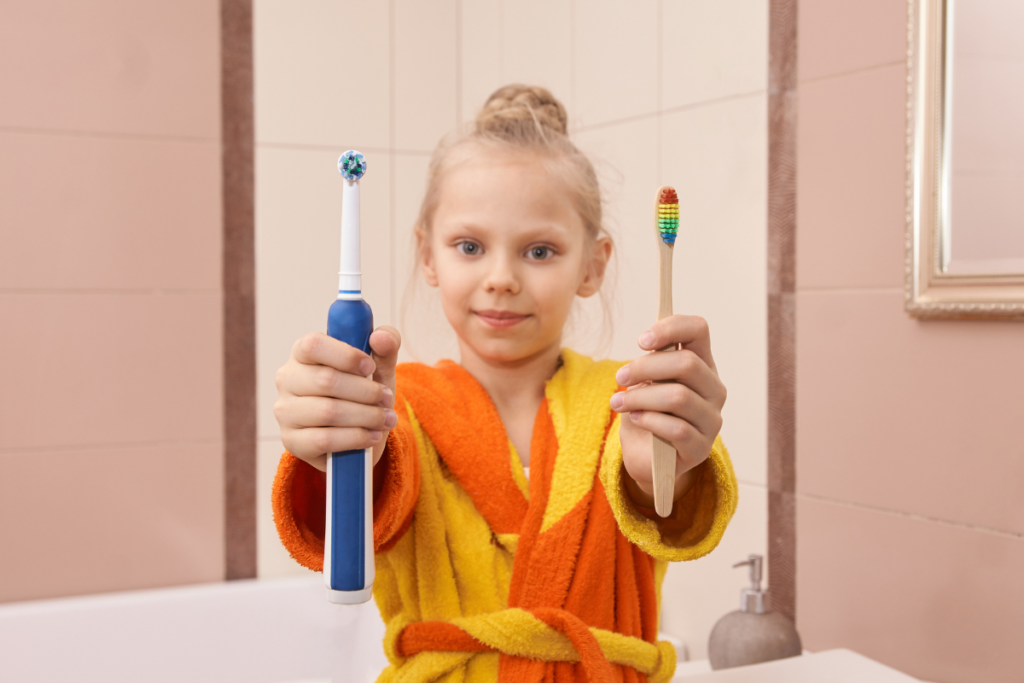Electric toothbrushes are becoming popular nowadays because of their efficiency in encouraging oral hygiene and the ease with which they are used. However, users considering electric options must know the challenges and financial considerations associated with electric toothbrushes. This article will examine the advantages, disadvantages, and affordability of electric toothbrushes to assist you in making a knowledgeable decision about your dental care.
The Benefits of Electric Toothbrushes:
1. Superior Plaque Removal: A systematic review published in the Journal of Clinical Dentistry found that electric toothbrushes, especially those with oscillating-rotating technology, can reduce plaque by 21% more than manual brushes after three months. Another study in the British Dental Journal reported that electric toothbrushes significantly decrease gum bleeding and improve gingival health.
2. Improved Oral Hygiene: Research in The Cochrane Database of Systematic Reviews indicated that electric toothbrushes significantly reduce plaque accumulation and gingivitis compared to manual brushes. This review analysed that electric toothbrushes offer better results, particularly for individuals prone to gum disease.
3. Ease of Use: People with limited skill, such the elderly or those with impairments, benefit greatly from electric toothbrushes because they demand less effort and let the brush perform the majority of the work.
4. Built-in Timers and Pressure Sensors: Many electric toothbrush models come with timers for the recommended two minutes and pressure sensors that alert users if they brush too hard, thus preventing gum damage.
Potential Problems and Issues
1. Cost
● Initial Investment: Electric toothbrushes generally have a higher upfront cost than manual brushes. Prices can vary from Rs 1500 to Rs 3000, depending on the brand and features.
● Replacement Heads: Replacement brush heads can be expensive. Some brands recommend changing heads every three months, which increases expenses.
2. Battery and Charging Issues
● Electric toothbrushes require regular charging or battery replacements. Users may find themselves in situations where the toothbrush is out of power, which can be inconvenient, especially while travelling.
3. Learning Curve:
● Using an electric toothbrush may take some users some time to get used to. It could take a few tries to find the right method to maximise effectiveness and minimise discomfort.
4. Maintenance and Durability:
● Electric ones are more complex than manual brushes and may require additional maintenance. Durability issues often arise, especially with lower-quality models.
5. Not a Complete Solution:
● Although electric toothbrushes can provide more cleanliness than manual ones, they can’t replace the need for other oral hygiene practices. Users should continue adhering to a complete oral care routine.
Common Myths:
1. Myth 1: “Electric toothbrushes are just a fad.”
● Fact: Research consistently demonstrates that electric toothbrushes outperform manual ones in improving oral health.
2. Myth 2: “You don’t need to brush as long with an electric toothbrush.”
● Fact: For adequate cleaning, brush for two full minutes, regardless of toothbrush type.
FAQs
Are electric toothbrushes suitable for everyone?
Yes, electric toothbrushes can benefit most people, including children and adults. There are models specifically designed for children that are smaller and often feature fun designs.
Do I still need to floss if I use an electric toothbrush?
Absolutely! Flossing is essential to remove plaque and food particles from between teeth, where toothbrushes can’t reach.
What type of electric toothbrush should I choose?
Look for models with the American Dental Association (ADA) Seal of Acceptance, which indicates they meet safety and efficacy standards. Consider features like oscillating heads, timers, and pressure sensors.
The Bottom Line:
Undoubtedly, electric toothbrushes are a better option for better plaque removal and improved oral health. However, these brushes require initial investments and continuous maintenance costs. Weigh these considerations against the long-term pros to see whether an electric toothbrush matches your dental care routine.
Disclaimer:
This information is for educational purposes only and should not replace professional dental advice. Always consult your dentist for personalised recommendations regarding your oral care.
How HealthPil Can Help:
HealthPil connects you with dental professionals who can provide tailored advice on oral care products. Schedule your consultation today and take your first step toward a healthier smile!

